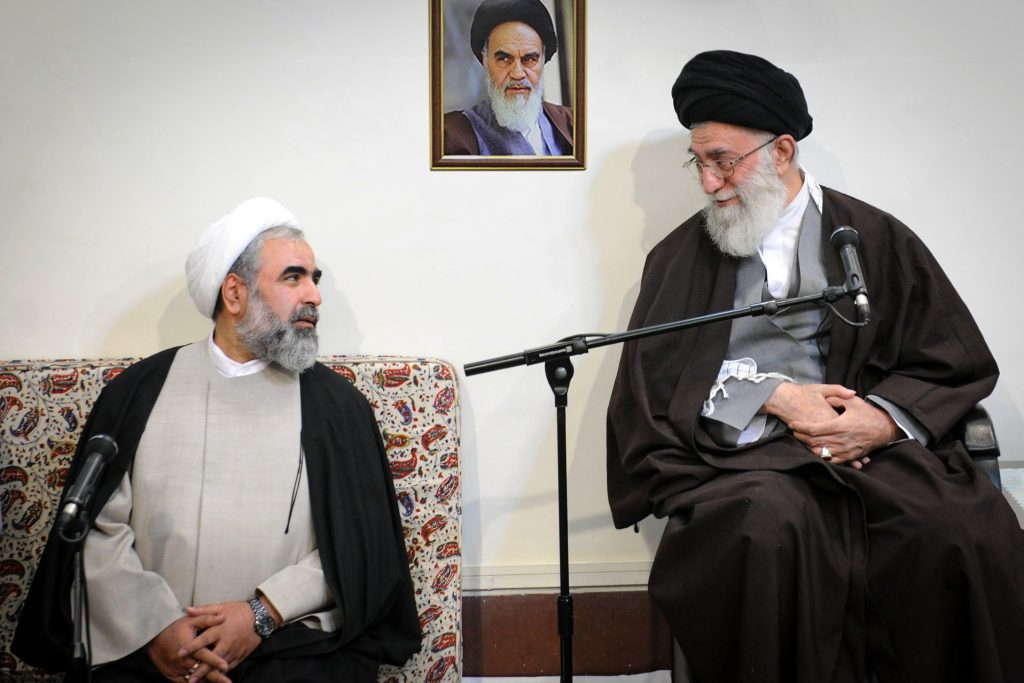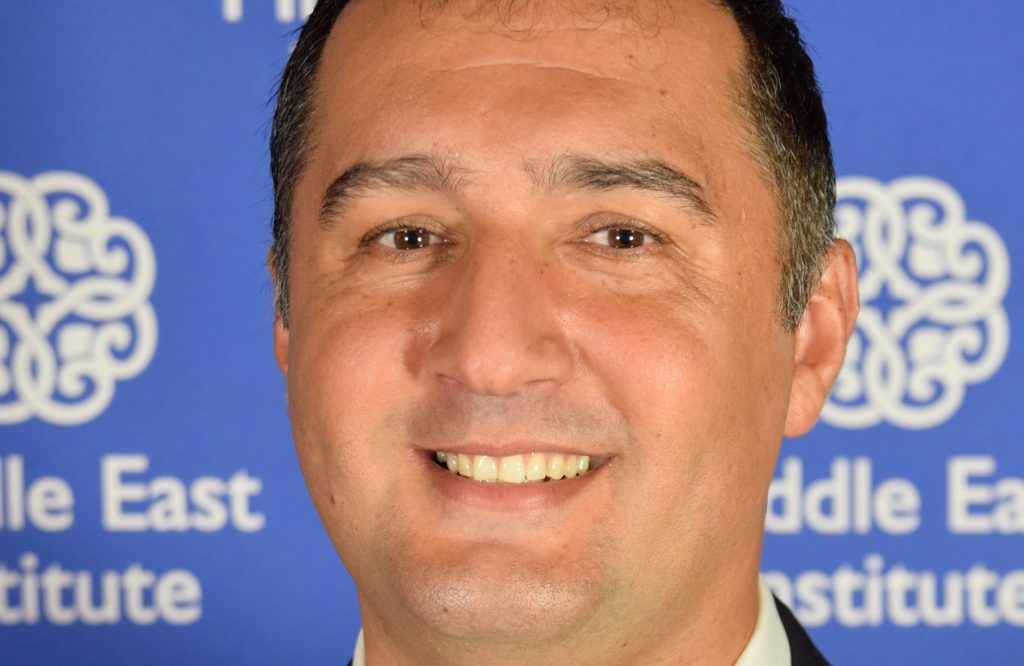Elections in Iran: Khamenei Silences Potential Opposition Ahead of Upcoming Ballot
In the run up to Iran’s presidential election, Supreme Leader Ayatollah Ali Khamenei has sought to entrench his power. Will a sharp slump in voter turnout reveal the extent of popular discontent?
Iran’s presidential elections on 18 June are not set to shift the status quo in the country. The man most responsible for this predicament is the unelected 82-year Supreme Leader Ayatollah Ali Khamenei who has been in power since 1989 and, in advance of the ballot, has signaled that he does not want presidential candidates to raise a question mark over Iran’s foreign policy.
Khamenei’s tight grip on the reins is illustrated by the regime’s vetting body, the Guardian Council, which he controls, single-handedly selecting who can run for the presidency. For this year’s election, 552 men and 40 women registered to run. Only seven men, and not a single woman, were approved – and any aspiring candidate that dared to question the wisdom of Khamenei’s stewardship of the regime was barred outright. Among them was former president Mahmoud Ahmadinejad who said after his disqualification that he will not vote and does not recognize this election as legitimate. Ahmadinejad was excluded from the running, even though he had a history of supporting this regime and protecting it from groups which wanted to reform the country back when he was president. All those candidates green-lighted are regime stalwarts while the two token reformist candidates are hardly agitators for radical change.
Highlighting the extent to which the rule is centralized, the Bertelsmann Transformation Index (BTI) 2020 for Iran has said: “The supreme leader, who is not elected by the people, holds absolute power in Iran. He determines Iran’s domestic and foreign policy, and has the power to interfere in legislative, judicial and executive decision-making.” Reflecting this concentration of power, the country came near the bottom of 137 countries surveyed by BTI’s political transformation index, ranking at position 126.
Meanwhile, the mass and indiscriminate disqualification of candidates was a throwback to the dark 1980s when Iranian presidential elections were foregone conclusions as a result of backroom deals. Since the candidates fail to offer any meaningful choice, a record low turnout is expected. In the 2017 and in 2013 elections, turnout was roughly 73 percent and 72 percent respectively. Turnout in June, however, is likely to slump, with most predicting a fall to between 20 and 30 percent. With social media buzzing with hashtags such as “I will not vote,” a voter turnout drop of over 50 percent would be a colossal embarrassment by any standard. Even members of the inner circle of Khamenei have questioned the blanket filtering out of candidates.
Khamenei seeks to minimize scope for surprises
But Khamenei continued undeterred: He came out in full defense of the mass disqualification of candidates, saying that the Guardian Council had done its job. His sole goal is to make sure no surprises emerge from the ballot box on 18 June. And by pre-screening who can run, Khamenei erases any fears he may have about the outcome. That said, Khamenei would likely prefer to see the 60-year-old Ebrahim Raisi win. The candidate is the head of the powerful judiciary in Iran and has been touted as a top contender to succeed Khamenei as supreme leader.
Raisi ran and lost in 2017 to Hassan Rouhani. Raisi then secured 38 percent or 16 million voters, a scenario that is impossible for him to repeat if voter turnout drops as sharply as polls predict. Still, if Raisi ends up in the Presidential Palace, regardless of how small of a margin of voter support he has, Khamenei will be more at ease as he organizes every detail of his own succession process after his death. For the 82-year-old Supreme Leader, the outcome of the presidential election is not about giving voters an alternative policy path for the future. It is about making sure the presidency has no potential to hamper Khamenei’s power transition plans.
Although the elected president in the Islamic Republic always plays second fiddle to the unelected Supreme Leader, the office of the presidency still oversees enough of the state bureaucracy to give it scope to be a spoiler. For this reason, Khamenei is taking no chances.
Opponents remain tight-lipped
Think again if you assume Khamenei’s micro-management of this presidential election process will mobilize wronged members of the regime to rise against him. For sure, there is plenty of anger but very few members of the regime dare speak up. Hassan Khomeini, the grandson of Ayatollah Khomeini who founded the Islamic Republic in 1979, issued the sharpest indirect criticism of Khamenei. “You cannot choose a candidate for me and tell me to vote for that candidate,” he said, without extending his critique.
Hassan Khomeini had been seen as a possible presidential candidate for the reform movement but was told by Khamenei not to bother even registering. When the reformists sought another big name to run, their gaze fell on Foreign Minister Javad Zarif. But a sensational off-the-record interview he gave was conveniently leaked by those who opposed him, pressuring him out before he could even ponder running. With no prominent candidates in the running for the upcoming election, the reform movement has opted not to endorse any of the seven candidates in the race.
The story of Iran’s reform movement is a tragic one. They had all the support of the people from 1997 and it continued right up to Rouhani’s reelection in 2017. But now there are many proponents for the notion that gradual reform in Iran is not possible. Meanwhile, the majority of Iranians no longer want to take part in the charade that is Iranian presidential elections. A boycott is the least they can hand Khamenei, and that appears to be where the 2021 Iranian election is more or less heading. Khamenei acts surprised, considering it necessary to stress that the “key to the Islamic Republic’s permanency is in the 2 words: ‘Islamic’ & ‘Republic.’” Khamenei knows he has all but ended any “republican” aspect to the “Islamic Republic” and has moved the country toward becoming a caliphate of sorts. He may not want to admit it, but the Iranian people can see through the mockery.
First published on qantara.de

